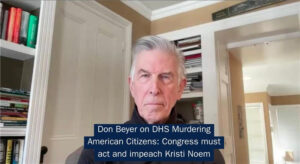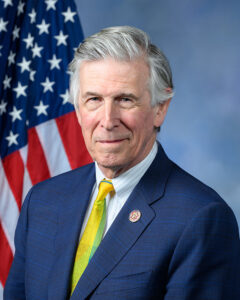After the scandal of Watergate, it was a rare moment in 1976 for someone the likes of a Jimmy Carter to step into the national political spotlight from his humble peanut farm in Georgia and wind up being elected president of the U.S. The nation’s 39th president died Sunday, Dec. 29, at age 100 doing more in his post-presidency to “walk the walk” of the kind of unusually combined spiritual and political commitment he held to the end.
His single term in the White House from 1977 to 1981 was a graceful pause in the terrible tumult the world had been thrust into following the 1963 assassination of President Kennedy that resumed its downhill course with the election of Ronald Reagan to end Carter’s term in the fall of 1980.
President Carter inherited a flailing U.S. economy and the Iranian revolution that marked a severe downturn in U.S. foreign influence, accompanied by a hostage crisis that the Carter team’s inability to settle before election day was considered the biggest single cause for his defeat. But it was a bit of a landslide for Reagan.
The pervasive view among Democrats and other progressives at the time was that Carter failed to project an aura of confident leadership. I attended the 1980 Democratic National Convention in New York City that summer, and all the buzz was around whether or not a rule change could be approved by the delegates that would have allowed Sen. Ted Kennedy to vie with Carter for the nomination.
When that vote failed, the enthusiasm among Democrats fizzled and a lackluster fall campaign season ensued with the odds heavily favoring Reagan throughout. I recall a conversation with a California constituent that Fall who sought to settle our dispute by calling someone in Las Vegas and asking in his booming voice, “What are the odds?” He hung up the phone, and was confident that Reagan had it in the bag, which as it turned out, he did.
But as is so often the case, the generation of a youth-oriented opposition to the incumbent at the convention was what really put the nail in Carter’s proverbial coffin. Insiders knew there was no way the rules would be overthrown to make Kennedy a viable candidate for the nomination, but they went ahead and pulled out all the stops, anyway. So it wound up hurting more than helping, and Reagan, who had been considered a far right wing choice among the Republicans from the time he spoke at the GOP convention in 1976, wound up in the White House.
Reagan was kind of a bridge between the right wing radicalism of that time and the far more serious and dispassionate form it took under Newt Gingrich and Dick Armey during the GOP “Contract With America” period in 1994 that opened the door to the Trump era. Nonetheless it was under Reagan that so much changed in Washington to make the Gingrich era possible. It’s so much easier to see these processes from the standpoint of hindsight.
But not to be lost in this narrative was what was going on in Moscow, where the Stalinist hardliners centered in the KGB, including Putin, were plotting their next moves in the context of the imminent fall of the Berlin Wall and all that meant for them going forward.
It was following his 1987 visit to Moscow that Donald Trump persuaded Putin and the others that he would be their best shot at advancing their cause in the U.S., as was reported at the time. Journalist Craig Unger, in his latest book, American Kompromat, “How the KGB Cultivated Donald Trump, and Related Tales of Sex, Greed, Power and Treachery,” (Dutton, 2021) reported on this citing the unlikely Executive Intelligence Review that reported, “The Soviets were looking more kindly on a possible presidential bid by Donald Trump.” Subsequent developments assign much more importance to that report than was evident at the time.
So, thus the post-Carter era was launched.













